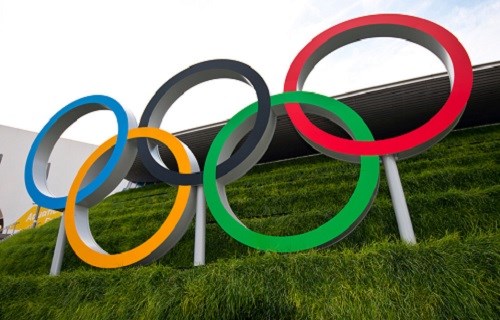The IOC’s decision on Russia and the Rio Olympics; spineless or fair?

09.08.2016
By Mads A. WickstrømFollowing a week of deliberation, the IOC decided, on July 24th, not to impose a blanket ban on Russian athletes participating in the Rio Olympics and instead leave it up to the individual sports associations whether to impose a ban on athletes. The decision has been criticised for a lack of punishment and for ‘passing the buck’. The head of the US Anti-Doping Agency, Travis Tygard, condemned the ruling by the IOC as being; "[…] a significant blow to the fight for integrity in the Olympic movement and the rights of clean athletes. […] Now is a time for clear leadership, not passing the buck, and unfortunately the buck has been passed to 28 different individual federations,” Tygard said.
Looking beyond the IOC’s ruling on Russia, an important question is how to ensure a free and fair Olympics in the future. Richard Pound, a senior active member of the International Olympic Committee and founding president of the World Anti-Doping Agency, recently presented his ideas on how the IOC may fight doping in the future.
“The IOC should pressure all stakeholders in the World Anti-Doping Agency to end its the chronic underfunding and provide the money necessary to carry out its responsibilities,” Pound said.
“WADA should be given the power to conduct investigations, to call on public authorities to provide timely and effective assistance and to require the target of any investigation to contribute to the costs of the investigation, failing any of which, the target may be provisionally sanctioned,” according to Pound.
Additionally, the role of whistle-blowers is especially important as they are the best sources of information in corruption situations, Pound says. They must be given recognition, encouraged and protected in order to ensure that they continue to step forward. Experts, including Richard Pound as well as Transparency international, have expressed their strong support for whistle-blowers and the importance of providing them with sufficient incentive to come forward.
The ban of Russian athletes from the Paralympics
The IOC’s decision to refrain from a blanket ban of Russian athletes from the 2016 Olympics is in stark opposition to the International Paralympic Committee’s decision to ban all Russian athletes from the 2016 Paralympic Games in Rio. The IPC’s action to ban Russian athletes came in the wake of the McLaren report, which revealed numerous covered-up doping tests of Russian athletes in Paralympic as well as Olympic sports.
The credibility of the IOC and its president, Thomas Bach, has been challenged due to the contrasting ruling by the IPC. Thomas Bach himself maintains that the decision has not damaged the IOC.
Contrasting views on the IOC ruling
In the days following the IOC decision, proponents, along with those critical towards the ruling, spoke out. In an interview with the BBC, former Olympic swimmer Sharron Davies said: "I'm just sad that they've passed the buck, as they so often do, down to the governing bodies, and I don't think the governing bodies have the time to be able to do very much about this. I think the only way to send an incredibly strong message to a state-run doping programme is a blanket ban."
In a Play the Game comment, Jens Sejer Andersen, International Director at Play the Game, finds that the IOC, hiding behind an apparent concern for the individual athlete, has been running from its responsibilities by letting the sports federations pass judgement on athletes.
“Out of this apparent concern for the individual athlete the IOC now pushes all other members of the sporting family to take the decision that the IOC does not have the courage to take. The IOC does not explain why the federations are better qualified than the IOC itself to make decisions based on criteria improvised for the occasion by the IOC,” Andersen writes.
As strong as the critique of the IOC might be, defendants of the decision argue that punishing Russia as a whole would be an unfair approach. Pat Hickey, president of the Olympic Council of Ireland supports the IOC’s decision arguing that “if you commit a heinous crime, why should your family also be sentenced and sent to jail? […] We have a duty to protect the clean athletes as well.”
In an interview with The Guardian Ian Blackshaw, a professor at the International Sports Law Centre in The Hague, Netherlands, agrees with the rationale behind the IOC’s ruling, thus supporting Hickey’s position, saying that “it is the right of an athlete to be heard before being condemned”. Furthermore, Blackshaw says that; “better that a guilty person goes free rather than an innocent one is wrongly convicted”.
-
More information





